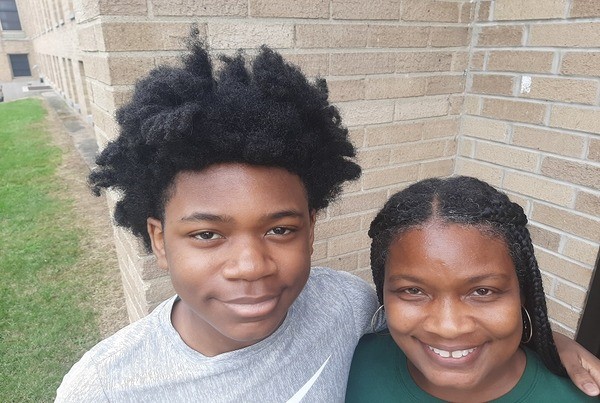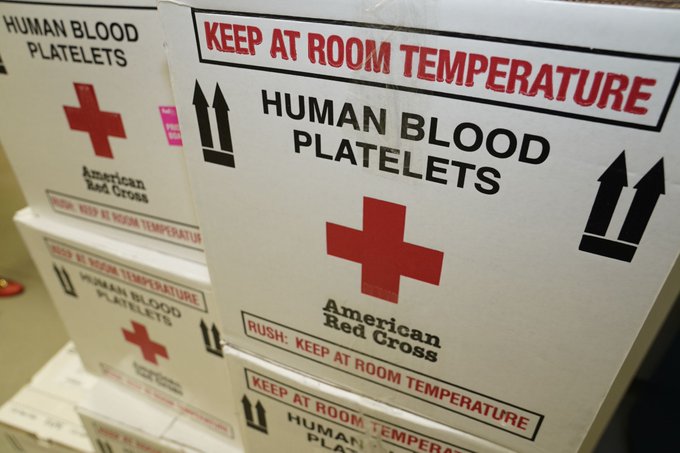A Mother’s Passionate Search
Seventeen-year-old Demarus Torrence loves comics and sci-fi movies, and he balances his work in high school while living with sickle cell disease. He endures monthly blood transfusions, and, at times, regular hospital stays to help with extreme pain and other complications.
“Just imagine someone hitting your back with a hammer, constantly, and it just won’t stop,” says Demarus’ mother, Passion Terrell. “[Demarus] describes it, and you can picture it, but you really can’t.”
Demarus is the only person in his immediate family with the disease, though testing has revealed other family members carry the sickle cell trait. As a mother, Passion has made it her mission to care for her beloved son and to inspire others to give blood – especially individuals who are Black and people who have never donated. The family hosted a Red Cross blood drive at Demarus’ school this month to highlight that generous donations can mean a world of difference to people like him.
“It’s amazing – once he gets that blood in him, it’s like a different person,” Passion said. “His breathing improves; his blood levels improve. It’s like his body wakes up.
Red Cross Launches Sickle Cell Initiative
When patients living with sickle cell disease face a sickle cell crisis, blood transfusions can make a lifesaving difference. That’s why the American Red Cross has launched an initiative to grow the number of Black blood donors to help patients with sickle cell disease, an enduring and often invisible health disparity in the U.S.
More than 100,000 people in the U.S. have sickle cell disease, the most common inherited blood disorder, and the majority of patients are of African descent. Despite the discovery of the disease more than a century ago, there have been fewer health resources available to help those currently suffering from sickle cell crisis in comparison to similar diseases. According to the Centers for Disease Control and Prevention, people with sickle cell disease experience worse health outcomes than comparable diseases.
Life-threatening complications
Sickle cell disease distorts soft, round blood cells and turns them hard and crescent-shaped, which can cause extreme pain. When hardened, the cells can get caught in blood vessels, potentially leading to stroke and organ failure. Blood transfusions provide healthy red blood cells to deliver oxygen throughout the body and unblock blood vessels.
A closer blood match leads to better outcomes
Many patients with sickle cell disease will require regular blood transfusions to help manage their disease. Unfortunately, these patients may develop an immune response against blood from donors that is not closely matched to their own. Many Black people have distinct markers on their red blood cells that make their donations ideal for helping patients with sickle cell disease. More than half of Black blood donors have blood that is free of C, E and K antigens – making them the best match for those with sickle cell disease. Learn more at RedCrossBlood.org/OurBlood.
”





